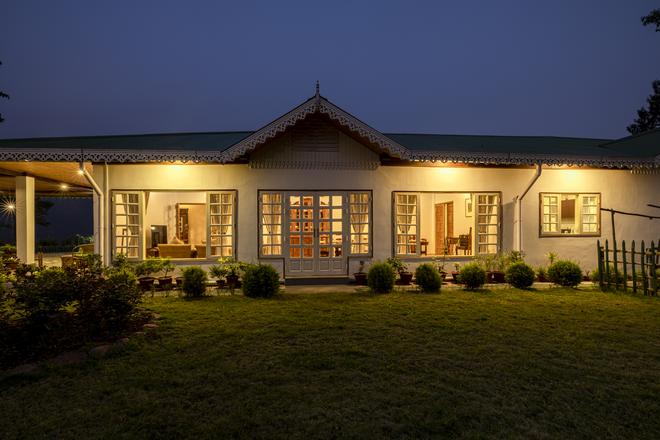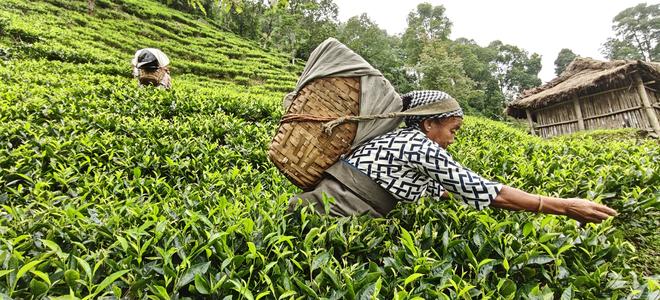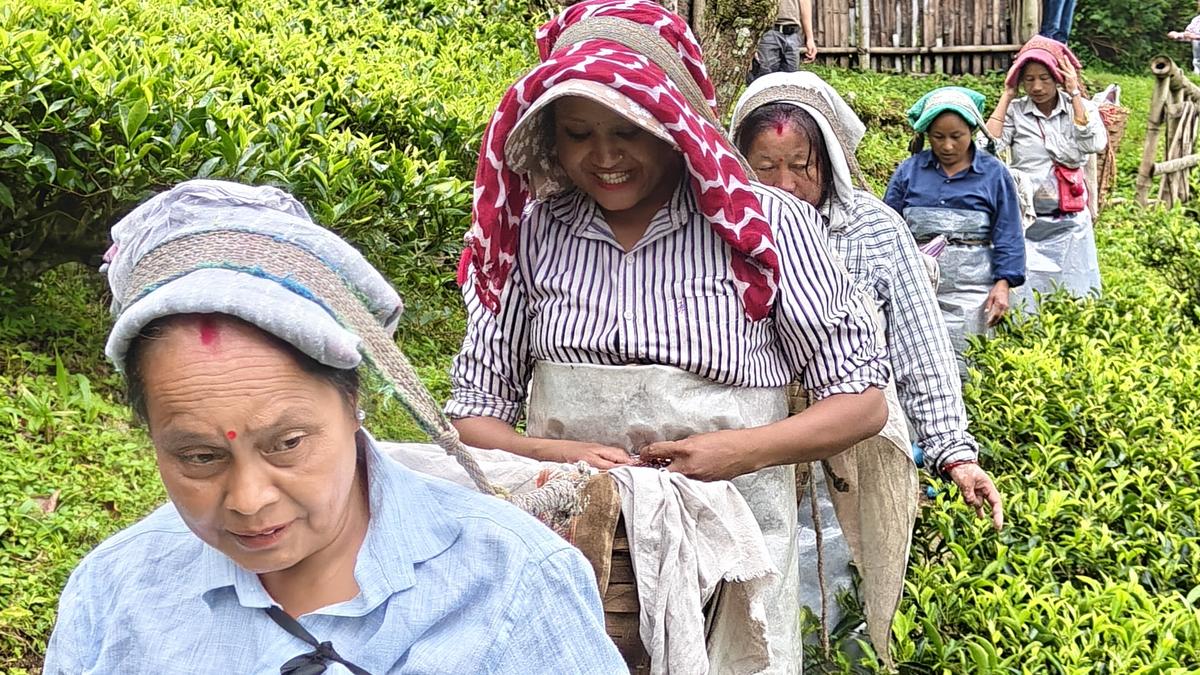More than half the workers are women. The bushes they care for tell the story – here, tea isn’t just a product. It’s a daily connection between people and plants.
| Photo Credit:
Srikrishnan PC
There is a certain mystique about the Makaibari Tea Estate in Kurseong from where the much prized Silver Tips Imperial tea comes. What gives it this special aura? A trip to the estate, on the foothills of Darjeeling in rainy July gave some clues.
The hills are quiet, the air fresh and cool. It rains but clears as quickly, allowing visitors to explore the tea gardens.
Following the leaf

The old Makaibari Bungalow used to be the home of the Swaraj (Rajah) Banerjee family, the legendary founders of the estate. Now, it’s a homestay
| Photo Credit: Special Arrangement
Walking through rows of tea bushes shaped by time, or to breathe the air in a place where tea is not just grown but lived, is a unique experience. One tastes not just a rare tea but also a slower way of life, built on care, people, and timing.
The old Makaibari Bungalow used to be the home of the Swaraj (Rajah) Banerjee family, the legendary founders of the estate. Now, it’s a homestay. The wooden doors, quiet halls, and garden views give it a warm, old-world feel. No less engaging is the estate manager Sanjay Das, who infuses magic as he recounts the tea-growing process at the estate. So, what makes Silver Tips Imperial so special? It’s not just the taste. It’s the time it takes. The care. The people. The sky above, and the soil below. The fact that every step is still done by hand.
It’s about taking things slow. About paying attention — to the leaf, to the moon, to the land. Behind every pack, there are women out in the dark, picking buds under the full moon. There are workers raising families, supporting each other, and taking pride in what they do. There’s a tea garden that grows without cutting down the forest.
See this link for more on how Silver Tips Imperial is produced
Living heritage

Makaibari estate covers 588 hectares, but tea is grown only on 248. The rest is dense forest — home to birds, butterflies, and wild animals
| Photo Credit: Srikrishnan PC
Banerjee, who led Makaibari for many years, helped shape its focus on natural farming. In 2014, the Luxmi Group took over the estate. But the work on the ground hasn’t changed much — the old ways are still in place. Makaibari is more than just a tea estate. It covers 588 hectares, but tea is grown only on 248. The rest is dense forest — home to birds, butterflies, and wild animals.
The farm follows the cycles of the moon and planets. No chemical fertilisers are used. Compost is made by hand, right at the estate.
Makaibari is also Fairtrade certified, which means the people who work here are treated with care and respect.
Local leaders
One of the most inspiring people at the tea estate is Meera. She started as a tea plucker at Makaibari in 2005. Today, she works as technical staff and also helps out as a healthcare worker for her colleagues. Over the years, she has had the chance to travel to different countries, representing Makaibari.
At Makaibari, tea pluckers earn ₹250 a day. To make extra income, many workers, including Meera, run homestays with the estate’s support. These homestays give visitors a true experience of life on the estate and help create a local economy, with some staff renting out rooms to one another. You can get a homestay here at ₹1,500, they say.
The estate also helps with the education of workers’ children and provides PF and gratuity. As one staff member puts it, “We grow tea, but we also grow people.”
More than half the workers are women. The bushes they care for tell the story – here, tea isn’t just a product. It’s a daily connection between people and plants.
Challenges
Makaibari isn’t free from challenges. Climate change is hitting the hills hard — rainfall is erratic, heat waves are longer, and pests are more aggressive. As a result, tea yields have fallen. What makes it worse is that some teas from Nepal are still being sold as “Darjeeling”. The GI tag exists, but poor enforcement has made it easy to bypass.
In his interview with businessline recently, Rudra Chatterjee, Managing Director of the Luxmi Group, said Darjeeling needs serious reform — better pruning, replanting, and natural care for the soil. Makaibari’s biodynamic system avoids chemicals and uses only compost and plant-based treatments, but this comes at a cost. Exports to Europe and Japan continue, but margins are shrinking. Shipping is more expensive, and cheap teas are everywhere.
Still, Makaibari stays with its old ways — slow, careful, and in tune with the land.
The writer was in Makaibari Tea estate, Darjeeling, at the invitation of Luxmi Group
Published on August 7, 2025
